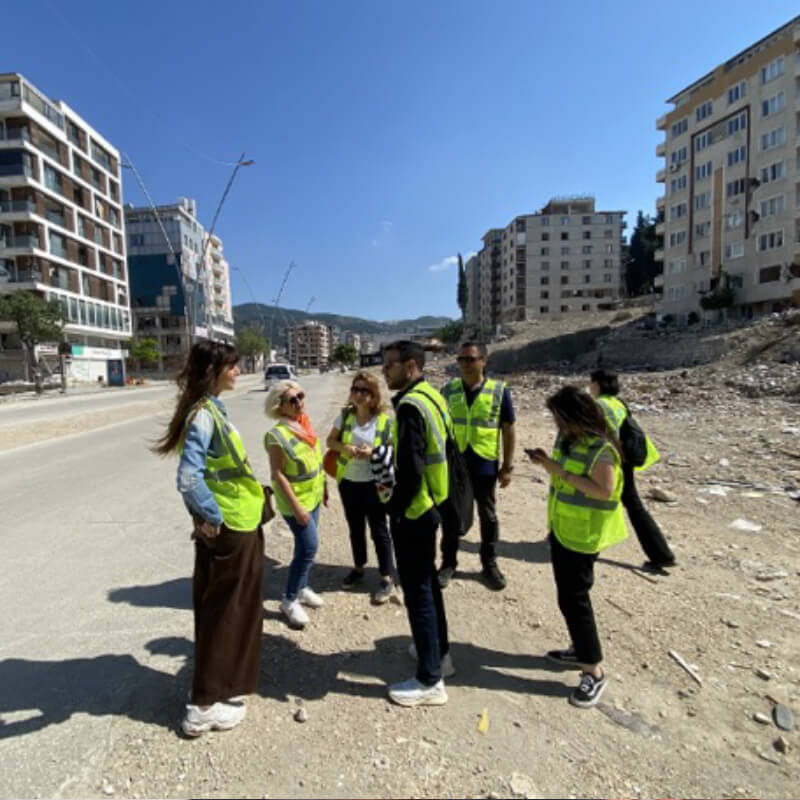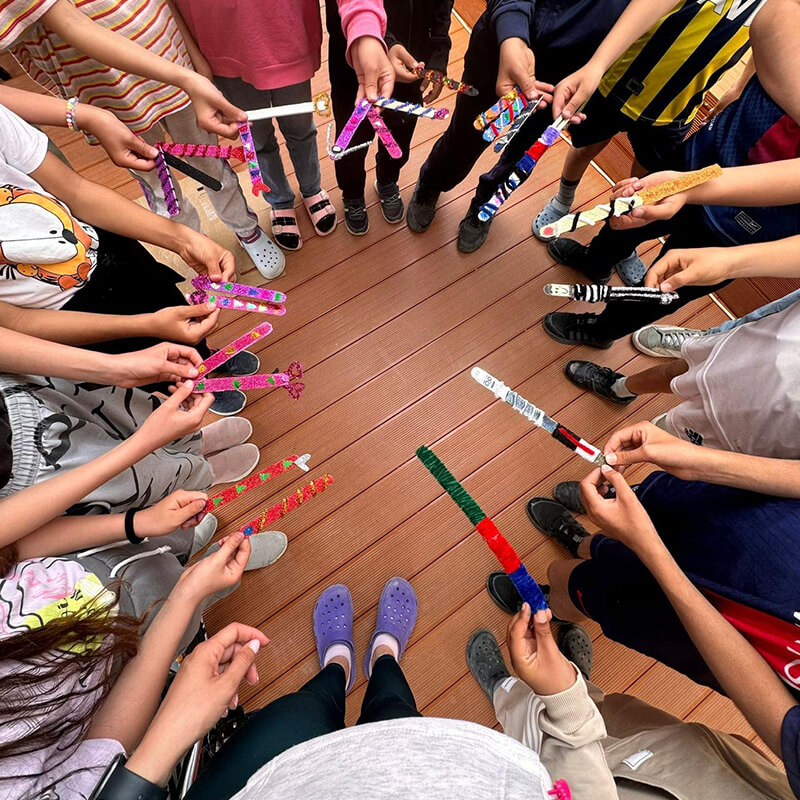Pillar spotlights
Photo: Delivering a session to a primary school class
Credit: Isle Listen
Responding to Crisis

In 2023, one out of every 23 people in the world needed humanitarian assistance and protection – OCHA*
In 2023, we provided assistance to victims of 20 disasters worldwide, collaborating with humanitarian organizations and Zurich employees to offer support tailored to the unique needs of each affected community.
While disasters may share similarities, their impact varies depending on factors such as community readiness and the evolving needs of those impacted.
One such instance was when earthquakes struck South-eastern Turkey and North-western Syria. In addition to supporting immediate relief efforts, we mutualized resources with Zurich's local team and Needs Map, building on our prior collaboration during the COVID-19 pandemic. This enabled us to launch mental wellbeing support, helping with the recovery process by providing young people with information and resources.
The entire project aims to build resilience post-earthquake and initiate a national preparedness plan. Firstly, the Side by Side online platform, originally established to support teachers and healthcare workers during the pandemic, will also offer free online psychosocial support (PSS) sessions to frontline helpers and humanitarian workers.
Additionally, to carry out field-based Mental Health and Psychosocial Support (MHPSS) activities, psychosocial support (PSS) centers were established in the container cities of three locations severely impacted by the earthquake. These activities encompass individual and group psychosocial support sessions, along with need-specific group activities.
These PSS centers serve as spaces for adults, youth, and children affected by the earthquake to access essential mental health and wellbeing support and participate in activities tailored to their needs.
The initiative also aims to help build a new country-wide culture to promote youth mental wellbeing, break down the stigma, activate the resilience of Turkish youth, and prepare them to best face potential future crises.
Photo caption: Visit to container city in Hatay with Sofyen Khalfaoui – Z Zurich Foundation, Zurich Sigorta Team and Needs Map Team in May 2023.
Photo credit: Serkan Dundar, Zurich Sigorta
*the United Nations Office for the Coordination of Humanitarian Affairs

Moving from reactive measures to a proactive strategy
The COVID-19 pandemic highlighted the importance of collaborative efforts and transparency when responding to crises. To tackle emergencies effectively, organizations must work together. In 2023, we initiated a listening journey to learn how corporate foundations like ours can contribute to humanitarian efforts. Our fourth pillar, “Responding to Crisis,” reflects our commitment to supporting people in disaster-affected communities and strengthening their personal resilience. With the number of climate and conflict-related disasters projected to continue rising, it is crucial to adopt a preventive, multi-faceted approach that addresses immediate needs and adapts as those needs evolve in the mid-term. By mainstreaming prevention and invisible needs, such as mental health, into our responses, we can achieve long-term impact in communities, helping them to thrive even in the face of future crises.
Learn more about our approach here: https://www.zurich.foundation/crisis-response
Photo caption: The handicraft activity for children took place at the Psychosocial Support Center, located in one of the earthquake-affected cities, Hatay.
Photo credit: PSS Specialist Hatice Nalan Süseli, Needs Map